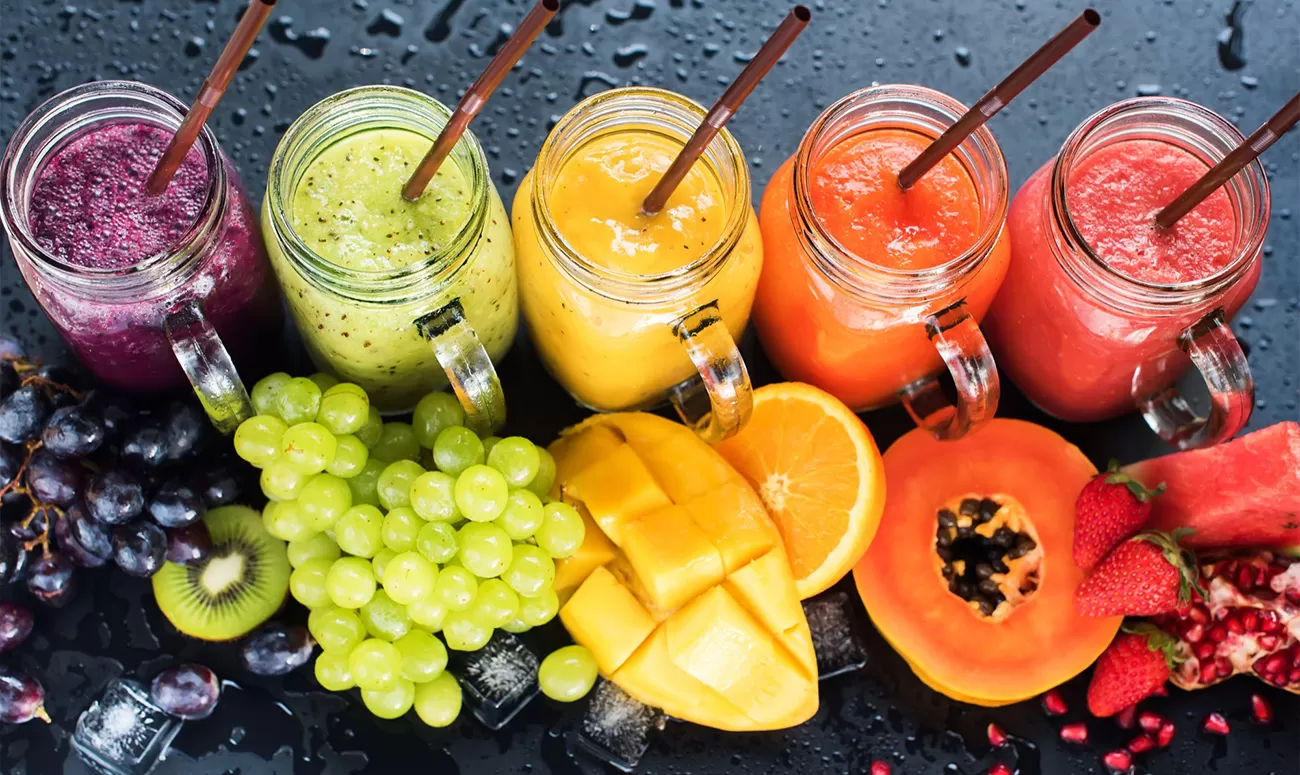Gut Health & Diet: Gut-friendly Drink Alternatives
High-sugar drinks featuring artificial sweeteners may be causing gut dysbiosis, which can negatively affect overall health. High-sugar beverages, such as soda and juices, contain elevated levels of simple sugars, which can lead to an overgrowth of harmful bacteria and fungi in the gut.
Recent studies have shown that a high intake of sugars can decrease bacterial diversity, increase the relative abundance of Proteobacteria in your gut microbiome and decrease the abundance of health-promoting species [1]. These changes to microbiota can lead to compromised gut barrier functions, systemic (low-grade) inflammation, and metabolic dysregulation [1].
The microbial changes caused by high sugar intake feature similarities to the microbiota dysbiosis associated with metabolic disorders, inflammatory bowel disease (IBD) and other human disorders [1].
It is common for health-conscious individuals to substitute high-sugar drinks for sugar-free drinks featuring artificial sweeteners. An increase in artificial sweeteners can have the same effects as high-sugar drinks, with recent research linking artificial sweeteners to significant disturbances to the gut microbiome [2].
Another way high dietary sugar intake affects the gut microbiota is by altering the metabolism of gut microbes. Studies have revealed that high sugar intake can alter how gut microbes metabolize nutrients, leading to the production of short-chain fatty acids (SCFAs) such as butyrate, acetate and propionate. These SCFAs play a vital role in maintaining gut health by promoting the growth of beneficial bacteria, regulating the immune system and protecting the gut lining. However, when high amounts of sugar are consumed, the production of these SCFAs is reduced, leading to a decrease in gut health and an increased risk of chronic diseases [3,4].
To summarise, high-sugar drinks can have an adverse effect on the gut microbiome by providing a source of food for harmful bacteria, decreasing the number of beneficial bacteria, and reducing bacterial diversity. This can lead to decreased gut health and an increased risk of chronic diseases. Therefore, it is vital to be mindful of the amount of sugar consumed in drinks and to opt for healthier alternatives such as water or unsweetened probiotic juice.

Here we list some gut-friendly drink choices for better digestion:
-
- Kombucha: a fermented drink rich in probiotics and antioxidants – make sure to look for a naturally sweetened option. Kombucha is a non-alcoholic beverage and is low in sugar and calories.
- Milk Kefir: a fermented milk product made by adding ‘kefir culture,’ which is a combination of bacteria and yeast, to milk. Kefir is an excellent probiotic source and can help create a more balanced gut microbiome.
- Kvass: is a traditional fermented product made by fermenting sourdough bread or beetroot. This probiotic beverage offers a wide range of vitamins and minerals.
- Coconut Water Kefir: is a fermented coconut water rich in probiotics and enzymes. It can help to improve digestion and boost the immune system.
- Water kefir: a fermented beverage made by adding water kefir grains, a combination of bacteria and yeast, to sugar water or fruit juice. It is also a good source of probiotics and can help to improve gut health.
- Non-Dairy Milk Kefir: fermented non-dairy milk made from coconut, almond, soy, or other non-dairy alternatives. It is also a good source of probiotics and can help to improve gut health.
- Water: Drinking plain water is the best for hydration and gut health. It helps to flush out toxins and keep things moving through your digestive system.
- Herbal tea: Herbal teas such as ginger, peppermint, and chamomile can help to soothe an upset stomach and promote digestion.
- Bone broth: Bone broth is rich in collagen, amino acids, minerals and other nutrients that can help improve gut health by promoting the growth of beneficial bacteria.
- Coconut water: Coconut water contains natural electrolytes, such as potassium, sodium, and magnesium, which can help balance the electrolyte levels and promote good digestion.
- Alkaline water: Drinking alkaline water may help to neutralize the acid in the body and promote a healthy pH balance in the gut.
- Aloe Vera Juice: Aloe vera Juice also has many benefits for gut health. It may help reduce inflammation and soothe the digestive tract.
- Buttermilk is a fermented dairy product prepared by adding bacteria to milk. The bacteria ferment the lactose in the milk, making it easier to digest for lactose-intolerant people.
Kindly note that everyone’s gut is unique, so what works for one person may not work for another. It’s always best to consult with a Gut microbiome professional before making any significant changes to your diet.
References:
[1] Satokari, R. (2020). High intake of sugar and the balance between pro-and anti-inflammatory gut bacteria. Nutrients, 12(5), 1348.
[2] Ridaura, V. K., Faith, J. J., Rey, F. E., Cheng, J., Duncan, A. E., Kau, A. L., … & Gordon, J. I. (2013). Gut microbiota from twins discordant for obesity modulate metabolism in mice. Science, 341(6150), 1241214.
[3] Laffin, M., Fedorak, R., Zalasky, A. et al. A high-sugar diet rapidly enhances susceptibility to colitis via depletion of luminal short-chain fatty acids in mice. Sci Rep 9, 12294 (2019). https://doi.org/10.1038/s41598-019-48749-2
[4] Garcia, K.; Ferreira, G.; Reis, F.; Viana, S. Impact of Dietary Sugars on Gut Microbiota and Metabolic Health. Diabetology 2022, 3, 549-560. https://doi.org/10.3390/diabetology3040042